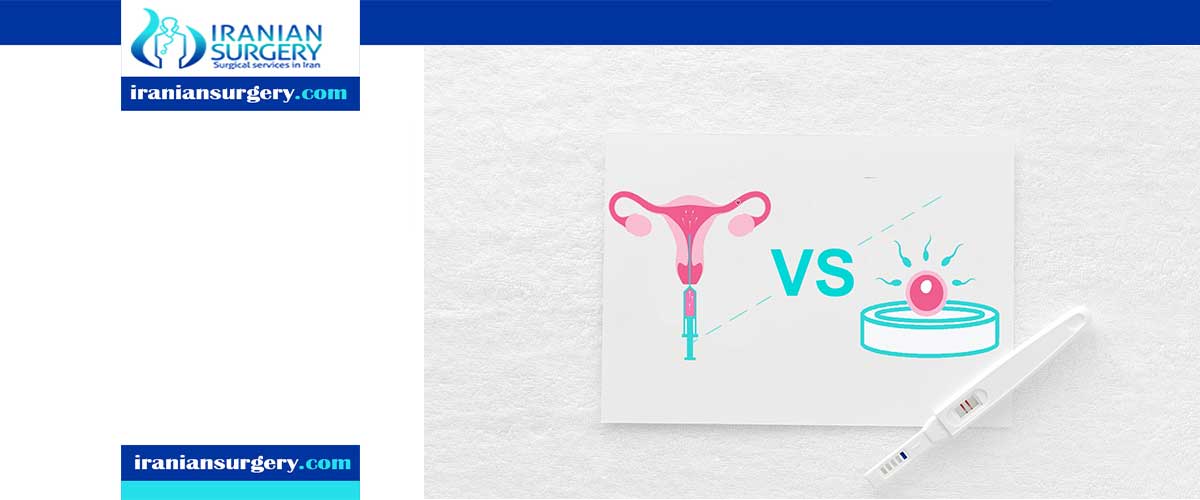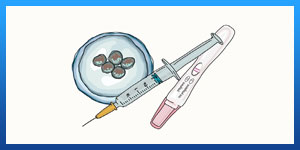Which is better IUI or IVF?

Which is more painful iui or ivf
Is IUI or IVF more successful?
What is the most painful part of IVF?
How painful is IUI?
Two of the most commonly used fertility treatments methods are intrauterine insemination (IUI) and in vitro fertilization (IVF). The main difference between an IUI and IVF treatments are: IVF is a process involving egg stimulation, retrieval, fertilization, and transfer; whereas, an IUI injects sperm into a uterus to decrease the sperm’s travel time to the egg.

Read more about : Is the IVF procedure painful?
Read more about : What are the Biggest Differences between IUI and IVF?
Read more about: : If Not Pregnant After IVF When Does Period Start?
Read more about : Do IVF babies look like Mom or Dad ?
IUI is a procedure during which processed and concentrated motile sperm are inserted directly into a woman’s uterus. This procedure is timed according to a woman’s ovulation, and may be performed one to two times in the days immediately following the detection of ovulation. After ovulation a woman’s egg is picked up by the fallopian tube and waits there for the sperm. Since the IUI procedure deposits higher concentrations of good quality sperm close to where the egg is waiting, the chances that the egg and sperm will find one another are increased.
IVF is the most successful method of fertility treatment utilized today to help couples to conceive. The basic components of the IVF process include stimulation of the ovaries to produce multiple eggs at a time, removal of the eggs from the ovary (egg retrieval), fertilization of the eggs in the laboratory, and subsequent placement of the resulting embryos into the uterus (embryo transfer). The chance of pregnancy from IVF depends primarily on the age of the woman, the cause of infertility, and factors related to the quality of the IVF laboratory.
Read more about: What is the success rate of ICSI IVF?
Which is better IUI or IVF?
The average success rate for IUI using a fertility medicine, such as Clomid, is 8-15% per cycle for patients who are under the age of 35. For IVF, the numbers are much higher. The success rate ranges from 40-45% for patients who are under 35 and it drops to 15% for patients who are over 42.
IUI is less expensive and less invasive than IVF. It also has lower success rates per cycle than IVF so you may need to try several times. You may be more likely to have twins or triplets.
In IUI, the highest quality sperm are selected and injected into the uterus where they are left to fertilize the eggs naturally. In IVF, the eggs are removed from the body and fertilized in the lab. This means that IUI is a less invasive procedure which involves fewer drugs than IVF.
Read more about: What is the lowest sperm count for IVF
Why do IUI instead of IVF?
IVF and IUI both are fertility treatments methods but they are different. Couples with infertility often start treatment with IUI, which is much less invasive than IVF. before you undergo IVF, it is advisable to partake at least three cycles of IUI. This is especially advised to women below the age of 35 as they have higher chances of conceiving with IUI.
Read more about: when is assisted hatching done in IVF
Is IVF and IUI same?
UI allows the body to do more on its own than IVF, so it’s a more natural but also less successful form of treatment.
In IUI, the highest quality sperm are selected and injected into the uterus where they are left to fertilize the eggs naturally. In IVF, the eggs are removed from the body and fertilized in the lab. This means that IUI is a less invasive procedure which involves fewer drugs than IVF. It’s also considerably less expensive one cycle of IUI is typically a quarter of the price of one IVF cycle.
However, IUI is also less successful than IVF. Once you’ve injected the sperm, you’re allowing the body’s natural processes to take over whereas in IVF you have more control you can check the egg has fertilized and select the best embryo(s) to put back into the womb. Success rates for IUI are generally around a third of that for IVF.
Read more about: IUI and IVF success rates
Is IUI or IVF painful?
People experience sensations very differently, and what may be unbearable to one person may not be cause for concern in another. This is a good reason not to be unduly alarmed about the amount of pain you can expect to go through when undergoing IVF. Each patient has a different reaction to the procedures involved, and may or may not experience slight pain. Physical discomfort is to be expected, and an experienced medical professional will be on hand to explain what is happening and provide comfort every step of the way. There are other forms of pain, though, such as the emotional pain of a failed attempt, that must not be taken lightly. However, successful IVF cycles generally mean childbirth, so it would be foolish to say that there is no pain involved whatsoever just know that it will be worth it when you hold that child in your arms.
The IVF preparation process can be scary, because many patients are entering into unknown territory and are unsure of what goes on in the lab. Initially patients will take a variety of oral medication and receive daily injections. During this phase, it can definitely be uncomfortable especially for those that do not like needles.
Read more about: IVF with frozen donor eggs process

